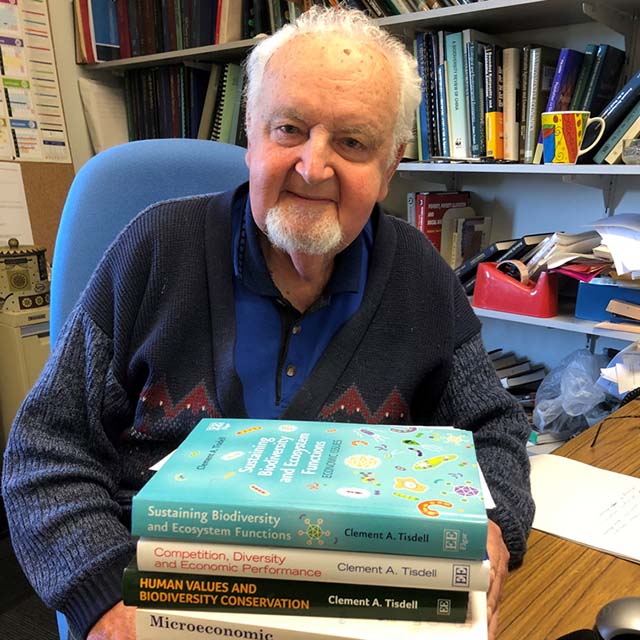Economics and gender studies researchers and students now have access to a new body of work that looks at gender inequality from a multidisciplinary perspective.
According to Emeritus Professor Clem Tisdell from UQ’s School of Economics, his book Gender Inequality: Socioeconomic Analysis and Developing Country Case Studies may be the first of its kind to consider the combined influences of economic, social and cultural factors on gender inequality.
Emeritus Professor Tisdell said his goal was to increase awareness of the complexity of gender inequality.

“My key conclusion was that discrimination against women could only be partially explained by economic theories,” he said.
“For instance, in parts of Asia, there is evidence of a decline in gender inequality as economic development and growth have occurred.
“Nevertheless, gender inequality continues to be a problem there, as it is elsewhere in the world.
“It’s important that we also take account of social and cultural influences, such as the difference in the status of women between different social groups.”
Emeritus Professor Tisdell said he hoped his book would make people more aware of the seriousness of gender inequality, its different manifestations, widespread occurrence and economic costs.
The book carefully balances theory and empirical evidence, including grassroots case studies on gender inequality and social discrimination from South Asian and Northeast Asian countries and tribal groups.
It brings together several key findings, such as the links between violence against women and lost GDP in several countries around the world.
Although he is best known for his work in agricultural and environmental economics, Emeritus Professor Tisdell said the book was the culmination of 20 years of research into gender inequality.
“From an early age, I have been concerned about issues involving social inequality and disadvantage,” he said.
“I had several working papers and many articles. I thought putting much of my research on this subject together in a connected way would be of lasting value.”
The author of close to 70 books, Emeritus Professor Tisdell said he was already working on his next project, the second edition of his widely read Resource and Environmental Economics: Modern Issues and Applications.
In the long term, he plans to co-author a book on the economic development and sustainability of ancient societies.
“I continue to write because I like the creativity involved and I like to tackle new topics, “he said.
“I hope my work continues to throw light on important socioeconomic issues.”
Contact: Emeritus Professor Clem Tisdell, c.tisdell@uq.edu.au.



